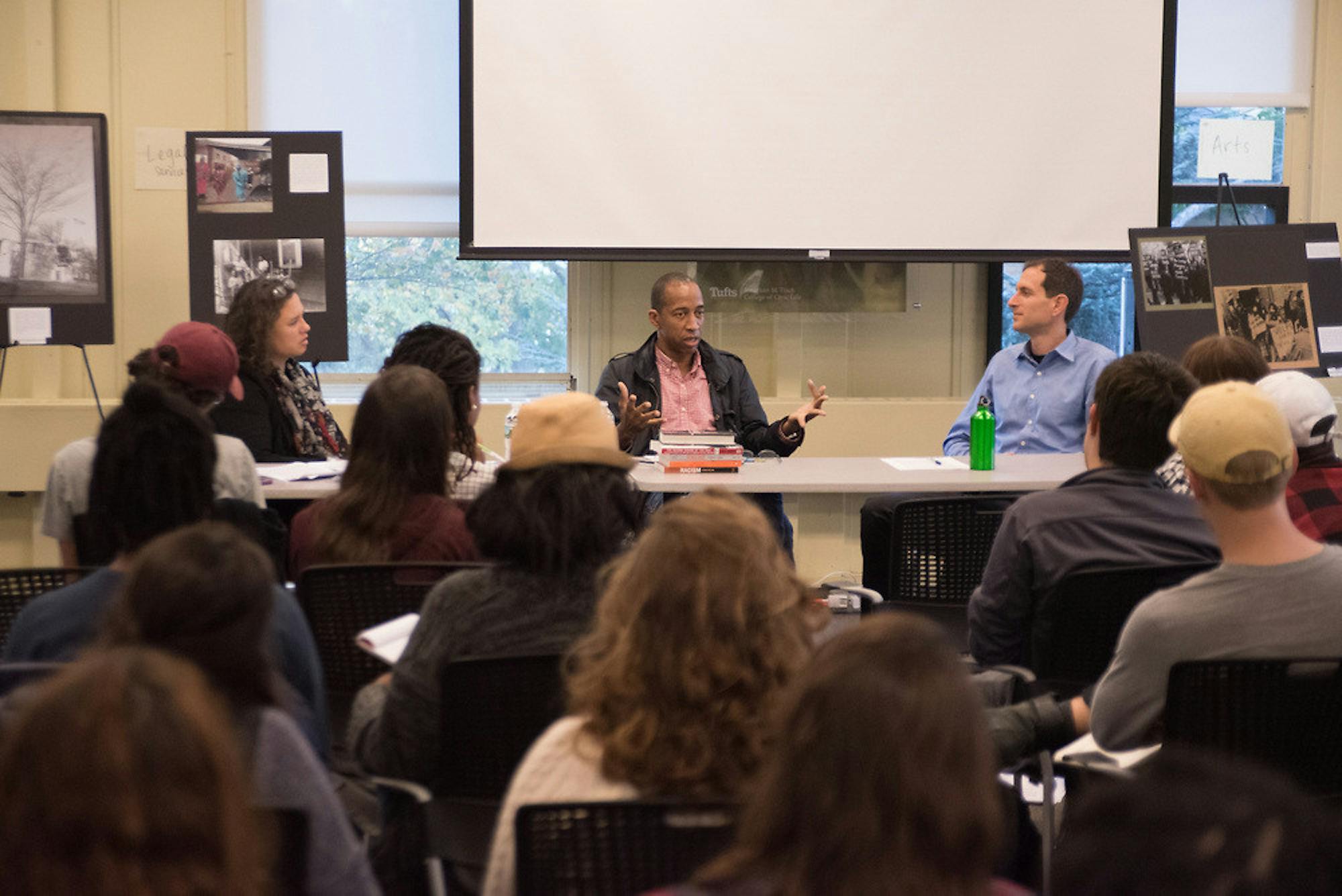The Center for the Study of Race and Democracy (CSRD) hosted its first panel discussion of the year, which focused on the history of segregation and its implications in urban spaces on Wednesday night, featuring Justin Steil, an assistant professor of law and urban planning from the Massachusetts Institute of Technology (MIT), and Garnette Cadogan, an essayist and visiting scholar at the Department of Urban Studies and Planning at MIT.
The discussion, titled "Racial Violence, Urban Space, and the Politics of History," took place in the Rabb Room, and more than 60 people were in attendance.
Kendra Field, director of the CSRD, introduced the two speakers, who each discussed racial violence in America and the role urban segregation plays.
Steil's research focuses on how segregation manifests itself in laws and policy about physical space. He discussed the history of urban segregation in the United States and the way legislation enforces white supremacy.
"[Racial] violence was constantly associated with the legislative signals of ... white dominance," Steil said. "When we look more broadly of this mob violence, we can see the way in which local white political elites facilitated white supremacy through the legislation that they passed."
He found that racial violence was significantly more likely to occur in the cities where segregation ordinances were adopted.
Next, Cadogan discussed how white people who claim to stay out of racial debates are tacitly supporting systems of white supremacy with their silence. He also shared personal anecdotes of facing stereotypes and racial discrimination.
"Any given week I am in CVS, I am assumed to work at CVS. I am assumed to work at restaurants and bars ... Any black person knows that at some point you are there to serve," Cadogan said. "Because of mere shade of my skin, I was there to serve you."
He added that racial discrimination is not only perpetrated by extremist hate groups, but also by people who are reluctant to let go of discriminatory systems established with white supremacist ideology.
"My fear wasn't the Klan," Cadogan said, "so much as my fear was a worried young white woman with an access to cell phone that could call 911 ... and shift my fortune for the worst."
The talk was followed by a question and answer session and a brief conversation among the panelists. Logan Mouton, a first-year who attended the event, said the event taught him about how silence can perpetuate white supremacy.
"The talk was really good," Mouton said. "I learned a lot. I think [the talk changed] my understanding of how white supremacy works."
Mouton said that Cadogan's remarks keenly addressed issues in the fight against white supremacy.
"Cadogan was talking about how when white supremacy is criticized, when the white power structure is criticized in America, white people often say ... they are innocent [by saying] 'oh that's not me,'" Mouton said. "I don't think they understand that [their action] really hurts the movement against ... white supremacy when they don't acknowledge the power structure that they benefit from."
Panel explores the history, implications of segregation

Garnette Cadogan, an essayist and visiting scholar at the Department of Urban Studies and Planning at MIT, shares his take on racial issues in America during 'Racial Violence, Urban Space, and the Politics of History' in the Rabb Room on Oct. 18.





